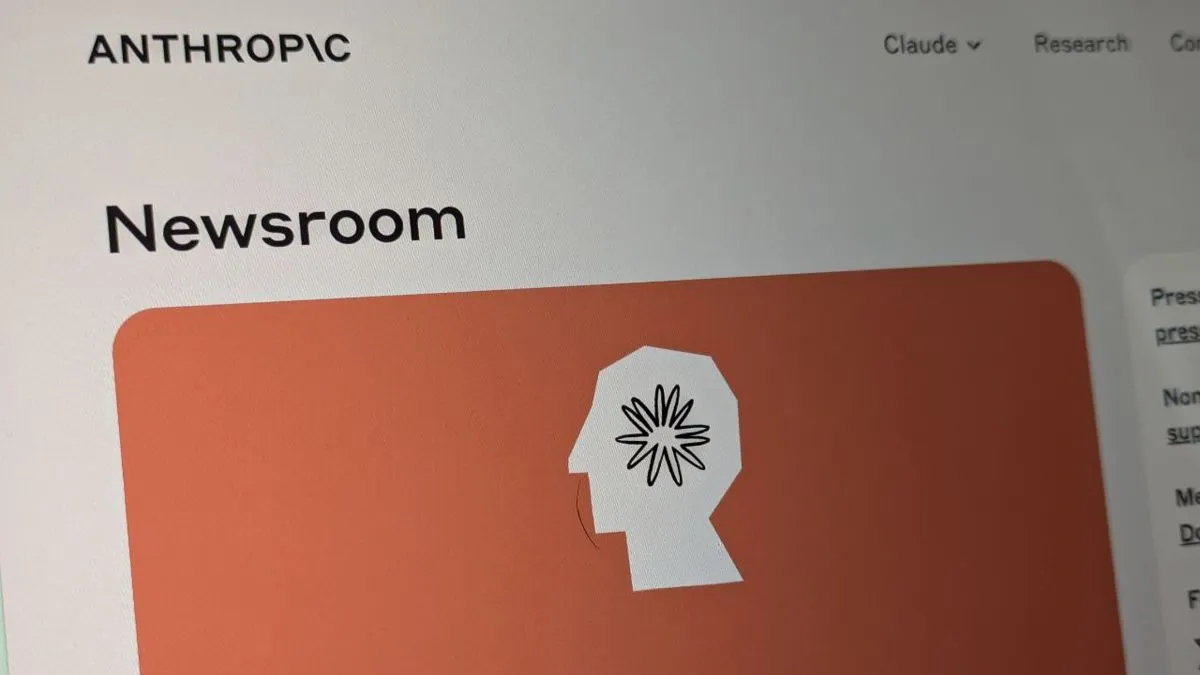Photo Credit: Ashley King
An amicus brief filed in support of a court injunction vs. AI company Anthropic seeks to have the startup stop using lyrics without permission. The RIAA argues that Anthropic’s defense is the same position Napster took in the late 90s.
Universal Music Publishing Group, Concord, and Abkco sued Anthropic in October 2023, alleging copyright infringement of their songs. Anthropic is an AI startup founded in 2021 by four former OpenAI employees and has received an investment from Amazon worth up to $4 billion. The lawsuit alleges that Anthropic’s chatbot Claude has infringed on the publishers’ copyrights by training Claude on their songs and by posting the songs’ lyrics in prompted answers.
Lyrics websites like Genius or LyricFind typically republish lyrics after they have signed a licensing agreement with the music publishers. However, Anthropic allegedly scraped these lyrics websites to train Claude, bypassing any licensing agreement that would be set up. When prompted, Claude provided lyrics to Katy Perry’s “Roar,” to which Concord owns the rights. Other songs tested include Gloria Gaynor’s “I Will Survive” (UMPG), and The Rolling Stones’ “You Can’t Always Get What You Want” (Abkco).
Plaintiffs allege that lyrics results are often returned as prompts, for example, asking Claude to write a song about the death of Buddy Holly returns most of Don McLean’s “American Pie.” When asked to write a song about moving to Bel Air from Philadelphia, the chat bot returns the lyrics of “The Fresh Prince of Bel-Air.” It also alleges when asked to write a short fiction in the style of Louis Armstrong, the chat bot mostly returned portions of the song “What A Wonderful World.”
In responding to the lawsuit, Anthropic did not deny that it trained Claude on these lyrics, but argues that their use falls under ‘fair use.’ Anthropic says the chat bot should not produce the lyrics in a 1:1 copy, but if it did that it was a bug rather than an intended feature of the chatbot.
“Anthropic has always had guardrails in place to try to prevent that result. If those measures failed in some instances in the past, that would have been a bug, not a feature of the product,” Anthropic writes in its response. Music publishers ask the court to issue an injunction that requires Anthropic to “maintain guardrails to prevent its AI models from generating output that contains publishers’ lyrics” and to “refrain from using unauthorized copies of such lyrics to train future AI models.”
Now a bevvy of music industry organizations have weighed in on the proceedings in an amicus curiae brief in support of these publishers. The RIAA, Artist Rights Alliance, and the Music Artists Coalition argue that while other AI companies agreed to licensing deals, Anthropic has so far refused.
“[M]any companies in the AI field have obtained licenses to use copyrighted content for AI model training and other purposes,” the brief states. “These companies are willing and able to comply with the law as they develop generative AI software—but not Anthropic. In order to obtain an advantage over its competitors, Anthropic has refused to license or compensate the authors and owners of the highly creative, copyrighted works that it copies and uses to generate competing works. Anthropic has argued ‘fair use.’ It is not.”
“The false choice that Anthropic have presented between compliance with copyright law and technological progress is a well-worn, losing policy argument previously made by other mass infringers such as Napster and Grokster in their heyday. Anthropic and COP even employ the same rhetoric as those pirate sites,” the amicus brief states.
The brief states that shutting down Napster and Grokster did not hurt technological progress. Instead, it paved the way for legal music streaming services that properly compensates rights holders when their music is streamed from any service which licenses it.





